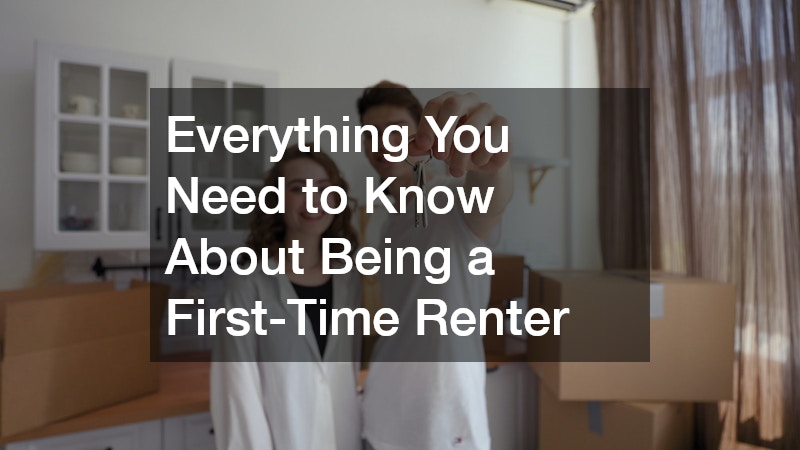Everything You Need to Know About Being a First-Time Renter
Renting your first place is an exciting milestone, but it also comes with plenty of new responsibilities and decisions. Whether you’re moving out on your own for the first time or relocating to a new city, the process can feel overwhelming without the right guidance. Understanding the basics of finding and renting apartments will help you avoid common pitfalls and make confident choices.
Determine Your Budget
Before you start scrolling through rental listings, take time to calculate how much you can comfortably spend on rent each month. Many experts recommend spending no more than 30% of your monthly income on housing.
Don’t forget to factor in other costs, such as utilities, parking, renter’s insurance, and internet. Knowing your budget from the start will help you focus your search on apartments that fit your financial situation and prevent you from falling in love with a place you can’t afford.
Choose the Right Location
Location is just as important as the apartment itself. Consider factors like commute time, access to public transportation, nearby grocery stores, and safety. Some neighborhoods may offer more affordable apartments, but they could be farther from work or social activities. It’s worth visiting the area at different times of day to get a feel for noise levels, parking availability, and overall atmosphere before committing to a lease.
Understand the Lease Agreement
Your lease is a legally binding contract, so it’s essential to read and understand it fully before signing. The lease should outline details like monthly rent, due dates, security deposit amounts, and any penalties for breaking the lease early. Pay attention to rules regarding pets, guests, and maintenance responsibilities. If anything in the lease is unclear, ask questions before you commit. Being informed will help you avoid misunderstandings with your landlord or property manager.
Inspect the Apartment Thoroughly
Before signing, schedule a walkthrough of the unit. Check that appliances work properly, faucets don’t leak, windows open and close smoothly, and locks are secure. Take photos or videos of any existing damage and share them with your landlord in writing. Documenting the condition of the apartments before move-in helps ensure you won’t be held responsible for pre-existing issues when it’s time to move out.
Know Your Upfront Costs
First-time renters are often surprised by how much they need to pay before even moving in. Along with the first month’s rent, landlords typically require a security deposit—often equal to one month’s rent—and sometimes the last month’s rent as well. You may also need to pay application fees, background check fees, or pet deposits. Having savings set aside for these expenses will make the process smoother.
Consider Renter’s Insurance
Renter’s insurance is a small monthly expense that can protect you from big losses. It covers your personal belongings in case of theft, fire, or certain types of water damage, and it may also provide liability protection if someone is injured in your home. Many landlords require tenants to have renter’s insurance before moving into apartments, so it’s wise to shop around for affordable coverage early in the process.
Plan for Utilities and Services
Ask your landlord which utilities are included in the rent and which ones you’ll be responsible for. In some apartments, water and trash collection are included, while electricity, gas, and internet are separate expenses. Setting up these services ahead of your move-in date ensures you’ll have heat, lights, and Wi-Fi from day one.
Stay Organized During the Search
Finding the right apartment can be a time-consuming process. Keep a list of the apartments you’ve viewed, including rent prices, features, and pros and cons. This will make it easier to compare your options and remember important details when it’s decision time. Being organized will also help you act quickly if you find a great place—rental markets can move fast, and desirable units don’t stay available for long.
Maintain a Good Relationship With Your Landlord
Once you’ve moved in, maintaining a positive relationship with your landlord can make your rental experience much smoother. Pay rent on time, report maintenance issues promptly, and follow the rules outlined in your lease. Good communication and reliability can also increase your chances of receiving a positive reference for future apartments.
Being a first-time renter comes with a learning curve, but with the right preparation, it can be an exciting and rewarding experience. By setting a budget, researching locations, reading your lease carefully, and inspecting apartments before moving in, you’ll be well on your way to finding a home that fits your needs. Remember to plan for upfront costs, secure renter’s insurance, and stay organized throughout your search. With these steps in mind, you’ll navigate the rental process with confidence and enjoy your new home to the fullest.


